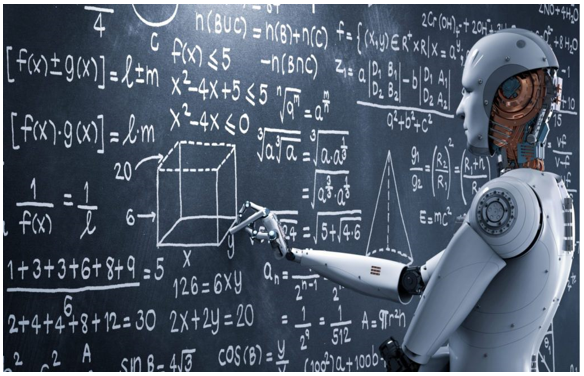- Courses
- GS Full Course 1 Year
- GS Full Course 2 Year
- GS Full Course 3 Year
- GS Full Course Till Selection
- Online Program
- GS Recorded Course
- NCERT (Recorded 500+ Hours)
- Polity Recorded Course
- Geography Recorded Course
- Economy Recorded Course
- AMAC Recorded Course
- Modern India, Post Independence & World History
- Environment Recoded Course
- Governance Recoded Course
- Science & Tech. Recoded Course
- International Relations and Internal Security Recorded Course
- Disaster Management Module Course
- Ethics Recoded Course
- Essay Recoded Course
- Current Affairs Recoded Course
- CSAT
- 5 LAYERED ARJUNA Mentorship
- Public Administration Optional
- ABOUT US
- OUR TOPPERS
- TEST SERIES
- FREE STUDY MATERIAL
- VIDEOS
- CONTACT US
G20 ministers supported equitable and inclusive use of AI in education
G20 ministers supported equitable and inclusive use of AI in education
23-06-2023

Latest Context:
Recently at the G20 education ministers meet in Pune, the ministers have agreed to equitable and inclusive use of Artificial Intelligence (AI) in the area of education and skilling that respects human rights.
- AI in education refers to the application of artificial intelligence technologies and techniques to enhance and improve various aspects of the education process.
- It involves the use of algorithms, machine learning, natural language processing and other AI methods to develop intelligent systems and tools that can assist educators, administrators and students in teaching, learning, and administrative tasks.
About the significance of AI in education
-
Personalized Learning: AI enables personalized learning experiences by making educational content and activities to suit each student's individual needs, learning style, and abilities. This personalized approach improves engagement, motivation, and learning outcomes by addressing the unique requirements of each student.
-
Adaptive and Intelligent Tutoring: AI-powered tutoring systems act as virtual tutors, providing individualized instruction, feedback, and support. These systems can analyize students' performance data, identify knowledge gaps and deliver targeted guidance, adapting to the student's pace and progress. This personalized assistance helps students grasp concepts more effectively and boosts their confidence.
-
Efficient Grading and Feedback: AI algorithms can automate grading processes for certain types of assignments and assessments, saving teachers considerable time. Additionally, AI can provide immediate feedback to students, enabling them to understand their mistakes and make corrections accordingly. This timely feedback enhances learning outcomes and helps students track their progress.
-
Data-Driven Insights: AI can analize vast amounts of educational data, including student performance, attendance records, and engagement levels. By identifying patterns and trends in this data, educators can get valuable insights into students' learning patterns, strengths, weaknesses, and overall progress. This information can inform instructional decisions, curriculum planning, and intervention strategies.
-
Enhanced Resource Accessibility: AI can assist in creating inclusive learning environments by providing assistive technologies for students with special needs. These technologies, such as speech-to-text or text-to-speech tools, adaptive interfaces and personalized learning plans, help students overcome barriers and access educational resources effectively.
-
Efficient Content Creation: AI can support educators in creating high-quality educational content more efficiently. It can generate quizzs, design learning materials, and curate resources based on specific learning objectives. This automation frees up time for educators to focus on instructional design and personalized interactions with students.
-
Continuous Learning and Skill Development: AI-powered platforms and applications can facilitate continuous learning by recommending relevant resources, courses, and skills based on individual learners needs and goals. This promotes lifelong learning and enables learners to acquire new knowledge and skills beyond traditional classroom settings.
While AI presents numerous opportunities in education, its adoption also comes with several challenges. Here are some key challenges:
-
Infrastructure and Access: Implementing AI in education requires robust technological infrastructure, including reliable internet connectivity, hardware, and software resources. Many educational institutions, especially in resource-constrained areas, may lack the necessary infrastructure and access to support the deployment and utilization of AI technologies.
-
Data Privacy and Security: AI relies on vast amounts of student data for personalized learning and analysis and ensuring data privacy and security is a crucial challenge in adopting AI in education. It is important to establish robust data protection measures, comply with relevant regulations, and maintain strict confidentiality to safeguard student information.
-
Bias and Fairness: AI systems are trained on existing data, which may contain biases, leading to potential biases in the recommendations and decisions made by AI algorithms. It is crucial to address these biases and ensure fairness and equity in AI-driven educational systems. Careful attention should be given to algorithmic transparency, accountability, and ongoing monitoring to prevent discriminatory outcomes.
-
Teacher Training and Professional Development: Effective integration of AI in education requires educators to have the necessary knowledge and skills to utilize and leverage AI tools. Providing adequate training and professional development opportunities for teachers is essential to build their capacity and confidence in using AI technologies effectively.
-
Ethical Considerations: AI raises ethical questions in education. For instance, there are concerns about the impact of AI on human relationships in the learning process and the potential replacement of human teachers. It is important to navigate these ethical considerations thoughtfully, ensuring that AI technologies complement human educators and serve the best interests of students.
-
Cost and Resource Allocation: Implementing AI technologies in education can be costly, requiring investments in infrastructure, software licenses, training, and ongoing support. Educational institutions need to carefully consider the cost-benefit ratio and allocate resources effectively to ensure sustainable and equitable access to AI-enabled education.
-
Resistance to Change: Introducing AI in education may face resistance from educators, administrators, and other stakeholders due to concerns about job security, technological literacy, or a reluctance to adapt to new teaching methods. Addressing these concerns requires effective communication, professional development, and involvement of stakeholders in the decision-making process.
The Indian government has taken several initiatives to promote the integration of AI in education. Here are some notable initiatives:
-
National Education Policy 2020: The National Education Policy (NEP) 2020 emphasizes the integration of technology and AI in education. It recognizes the potential of AI for personalized learning, adaptive assessments, and intelligent tutoring systems. The NEP aims to promote AI-driven platforms and tools for effective teaching and learning.
-
AI in Education Initiative: The Ministry of Education under the Government of India, launched the "AI in Education" initiative to promote the use of AI in the education sector. The initiative focuses on leveraging AI for personalized learning, improving assessments, and enhancing the overall quality of education.
-
Atal Innovation Mission: The Atal Innovation Mission (AIM) is an initiative by the NITI Aayog to promote innovation and entrepreneurship in India. AIM has launched the Atal Tinkering Labs (ATL) program, which aims to provide students with hands-on experience in emerging technologies like AI. It encourages students to develop AI-based solutions and projects.
-
AI-Based Educational Apps and Tools: The government has supported the development and deployment of AI-based educational apps and tools. For example, initiatives like SWAYAM (Study Webs of Active Learning for Young Aspiring Minds) and e-Pathshala offer AI-powered learning platforms that provide access to digital learning resources, online courses, and interactive content.
-
YUVAi (Youth for Unnati and Vikas with AI) for capacity building of students in application of AI.
Conclusion:
Overall, AI in education offers the potential to improve educational outcomes, enhancing the learning experience and support teachers in delivering effective instructions. It’s personalized learning empowers educators with data and promotes inclusivity and accessibility in education.
Must Check: IAS Coaching Centre In Delhi



